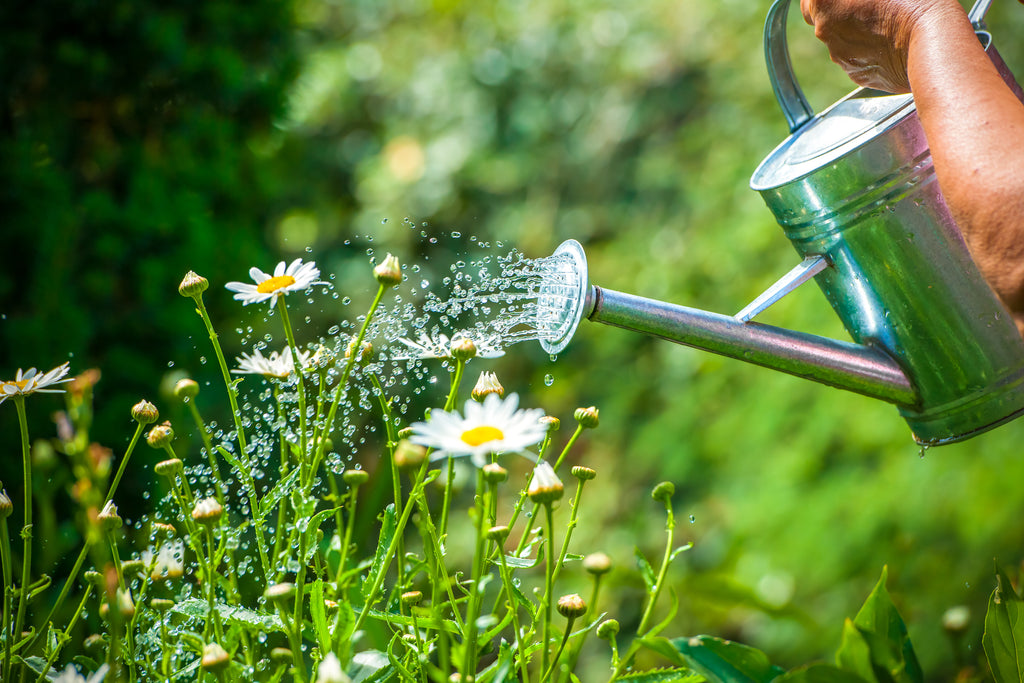How Green is Your Garden?

Green gardening is very on trend...
With all the changes as to how gardeners have started to think about the environment, climate change and how they can play their part, the subject of green gardening is overdue.
We share some tips on how to become more eco-friendly in your garden or back yard
1. Growing your own fruit and vegetables. One of the great things about home-grown (apart from the improved taste) is that there are no air miles and no unnecessary packaging.
2. Helping insects to survive and thrive. Insects aren’t just critical to our gardens, but to the health and survival of the planet. As well as being vital pollinators and nutrient recyclers, they also provide food for birds and other creatures, The big problem is that insects are disappearing rapidly worldwide because of the intensive use of pesticides and other chemicals. Global experts predict that more than 40% of insect species are declining and a third are endangered. Growing native flowers to encourage pollinating insects as well as saying "no" to chemicals will be a big help. If insects become a problem in your garden, look for more natural ways to deter them.
3. Getting rid of weeds without harming the soil by avoiding the use of weedkillers. Instead, regular hoeing is the best way to keep annual weeds at bay while perennial and/or deep rooted weeds can be dug up. Both hoeing and digging provide excellent forms of exercise! If you mulch around plants with wood chip, bark or home-made compost, this will also help. Manual weed control is an ongoing job but so much healthier for you and the soil.
4. Saving rain water. If you save rain water runoff rather than using the tap, you will save money and help your crops as rainwater is neither too acid nor too alkaline. Mulching around plants helps to retain moisture while watering your plants first thing in the morning or last thing in the evening will help to reduce evaporation.
5. Recycling and reusing. Finding creative uses for unwanted and everyday items saves resources and cost. Look for items that you can recycle and reuse rather than buying new. For example, Pinterest will have plenty of suggestions!
6. Rethinking on the subject of lawns. For example, one Swedish study found that cutting the grass for one hour with a petrol-operated mower produced as much air pollution as a car journey of one hundred miles. This was because of the disproportionate amount of fumes produced by small engines. Do you even need to have a pristine lawn? Isn't it time to have a less than perfect lawn? In fact it damages wildlife and the environment too as (a) cutting grass burns lots of fossil fuel (b) it is noise polluting and (c) it can make the grassy area of your garden virtually sterile. Isn't it time to leave your lawn (or sections of it) and let it grow. If you can let at least some of your grass grow longer, it is probably the single most effective thing you can do in any garden whatever its size to encourage wildlife. The mini jungle created by long grass gives wildlife a safe haven to hide in while encouraging the growth of wildflowers which are great for the bees. Get the best of both worlds by having a natural lawn but one that needs less maintenance and is kinder to wildlife, the environment - and of course the insects too!
7. Make your own compost. As well as being an excellent way to recycle vegetable and garden waste, having a compost bin will mean you have a ready supply of rich organic matter to spread where needed. A wormery is another suggestion.
8. As well as compost, you can also make your own liquid feeds – nettles, comfrey leaves, or seaweed steeped in water for a couple of weeks make a nutritious (if rather smelly!) treat for growing plants.
9. Look for supplies of manure from farms and stables who are often able to provide these at no cost. Well rotted manure can be spread on the soil especially over the winter months to break down and improve the soil or they can be added as a layer into the compost bin.
10. If you do buy commercial compost, look for peat free compost. Here in the UK, peat bogs are threatened. They store valuable amounts of carbon, providing important ecosystems.
Going organic and/or becoming more eco-friendly in the garden takes a little more planning, but your plants - and the planet will thank you.
In fact, the future may well depend upon it.

SOURCES:


